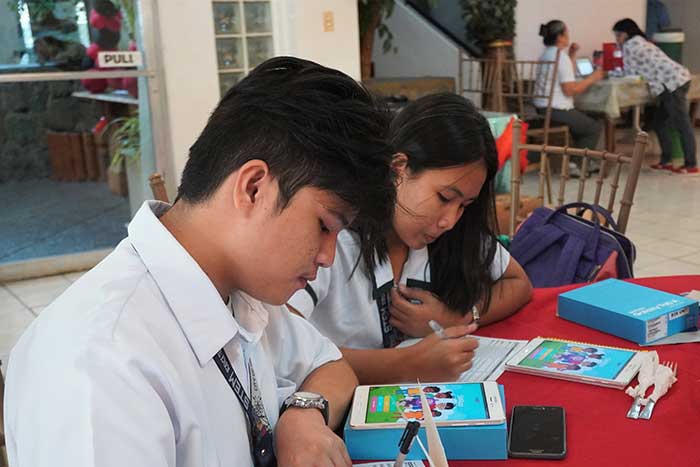On International Day for Disaster Risk Reduction, the Department of Education (DepEd), Save the Children Philippines, and Prudence Foundation celebrated the success of the Comprehensive School Safety Ecosystem (CSSE) Project and reiterated their commitments to making learning safe for Filipino learners.
The CSSE Project is a multi-stakeholder partnership by DepEd, Prudence Foundation and Save the Children aimed at strengthening the resilience of the Philippine school system to all hazards, including the impact of the climate crisis.
Since its launch in 2018, the CSSE Project has already reached over 620,000 people across the Philippines through different interventions that leverage innovation, technology, data, collaboration, and children’s participation. It also serves as a sustainable and scalable strategy for protecting all 47,000 schools in the Philippines against disasters, including the effects of climate change.
“With the continuous threats of extreme weather events such as typhoons, floods, and impacts of climate change, we stand firm in our commitment to keep students, teachers, and staff safe in schools, and to limit disruption in learning in case such disasters take place using the different components of the ecosystem and tools developed by the project,” said Atty. Christian C. Rivero, Director IV Disaster Risk Reduction and Management Service of the Department of Education. “We are grateful to have worked with Save the Children Philippines and Prudence Foundation to help achieve the vision of uninterrupted education in the country.”
The Philippines ranks first in the World Risk Index with the highest risk of disasters in the world in 2022 and 2023. The said report projects that Filipinos are most vulnerable to disasters due to extreme natural events and impacts of climate change.
“Education is key to uplifting the lives of the most marginalized and vulnerable children, and any interruption in children’s education can negatively impact their lives in the long run,” said Atty. Alberto Muyot, CEO of Save the Children Philippines. “We are grateful for this partnership project with the DepEd and Prudence Foundation. We hope that the achievements of the CSSE Project will be replicated in all schools in the Philippines, and influence other countries so that children can enjoy quality education that is safe from disasters.”
One of the most notable accomplishments of the project was the creation of the Disaster Risk Reduction Management Information System (DRRMIS) within the Department of Education. This featured three digital apps that were adapted to the DepEd’s needs and integrated into their processes to increase data collection for school safety response and planning.
The Rapid Assessment of Damages Report, or RADaR, digital app enables the immediate reporting of disaster related damages, allowing the DepEd to respond quickly. The information from the app helped the DepEd’s overall internal and external school safety coordination and planning, as well as influencing an increase in the
DepEd’s disaster response budget. Comprehensive School Safety (CSS) Monitoring and the School Watching App (SWApp) are two more applications and tools developed to support preparedness and children’s participation.
“Disaster preparedness and resilience is very important in any setting—even more so in the context of children’s education. The risks to children’s education are increasing, but so is our drive in developing and delivering programs to increase resilience and create a safe and healthy learning environment for children,” said Marc Fancy, Executive Director of Prudence Foundation, the community investment arm of PruLife UK’s parent company Prudential plc.
The CSSE Project received an award at the United Nations Sasakawa Awards for Disaster Risk Reduction in 2022. Best practices from the CSSE Project were recognized at the United Nations Climate Change Conference (COP 27) in 2022, the Asia-Pacific Ministerial Conference for Disaster Risk Reduction in 2022, and the UK Forum for International Education and Training (UKFIET) Conference in 2023.




















